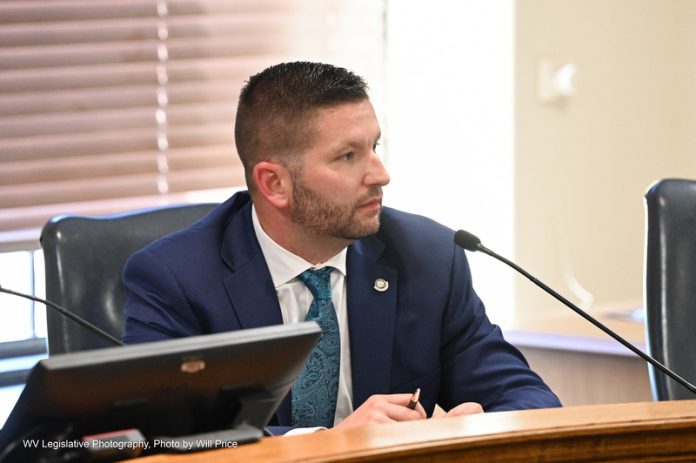The Committee on Government Organization met this evening.
The first presentation was about Senate Bill 626, increasing penalties for operating a house of prostitution.
Human trafficking is happening in West Virginia. In WV, the massage therapy businesses are facilities where human trafficking is taking place. Investigations have found that through organized crime individuals were applying to be licensed as massage therapists; however, it was found one person was filling out the applications for several people. The Massage Board has worked with law enforcement to shut down these locations, but they just reopened a few months later in a new location.
The women working in these facilities often refer to the leaders of the crime organization as the boss or a handler. The only time the business owner or boss comes around is when investigations happen. The leaders of this organization recruit women from other countries with the promise to have them work as licensed and legitimate massage therapists. Then, the women are forced into sexual work and not allowed to leave the premises.
Testing centers and licensing boards are being educated to be aware of the human trafficking situations. If a woman is accompanied by a handler during testing or during the application process, it should be flagged.
The goal of Senate Bill 626 is to arrest the individuals organizing this crime, not the women forced into living and working in these facilities.
A detective from Parkersburg presented a case involving unwanted sexual advances at two massage businesses in the Parkersburg area. At both businesses, the owner was hands-off, and a Chinese woman lived and worked at the business. Undercover officers were sent to each location and sexual advances were made. The owner stated that the women were “self-employed contractors” at his business, and he never instructed them to make these advances. It’s been found that it’s becoming very common for these situations to take place in West Virginia. Human trafficking can be physical, but it can also be psychological with threats to individuals and families being made. The case is moving forward with hopes of prosecution.
The committee also heard reports from PERD.
The first report reviewed was the termination of the Board of Hearing Aid Dealers. The report was required by law to be sent by the board to PERD to present to the committee. Effective June 30, 2023, the Board of Hearing Aid Dealers was officially terminating. Any remaining funds were sent to General Revenue. The furniture and equipment went to the Board of Landscape and Architects as it was being shared. Records were handled appropriately. Licensure for hearing aid dealers will continue under the Board of Speech-Language Pathology and Audiology.
Next, a report on public transit was presented. The recommendations made in this report are that public transit needs to develop a long-range plan to increase services. Public Transit should work with regional development councils to increase ridership and expand services. State code should be updated relating to public transit plates to ensure all transit providers are treated the same when registering plates.
The final PERD presentation was provided on the Board of Physical Therapy. The board complies with the code. Its website does need modest improvements and ADA requirements are not met throughout the building. The board is self-sufficient. Currently, the board’s balance is four times the budgeted expenses. The State Treasure should make transfers to general revenue when the board’s revenue is twice as much as the board’s expenses. Due to fee changes and increased expenses, the board is not processing an excess in revenue. However, the current balance is in excess and an additional transfer from the Treasurer is expected.
The last presentation for the committee was on the hiring and compensation process with the Division of Personnel. Screenings for the registries used to be four to six weeks. Now, it is between 24 hours for auto screening and up to four days if rated by a person. The position is posted for 10 days internally and 15 days to the public. It is recommended that this is done simultaneously. After an applicant is rated and ranked, the registry goes to the agency and the Division of Personnel no longer has control over hiring time.
The compensation process is only for DOP classified under the DOP merit system principles. Pay grades are assigned by education and experience. There is a minimum and a maximum within the pay grade. The classification is set up with certain percentages, which is not how it usually would be done. However, it would cost millions to change the classification system.
With exemptions, some agencies are able to offer higher pay scales. This leads to losing personnel to other agencies in state government. There is a structure in DOP pay scales and classifications.

